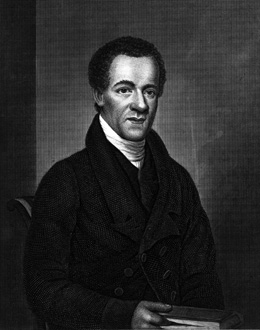Barack Obama and People who Need People

Two weeks ago, President Barack Obama delivered his final State of the Union Address. In the run up to the event, many speculated as to what the president had in store for what had been promoted as a non-traditional speech. Yes, Obama did focus more on national accomplishments and his vision for long-term possibilities as opposed to a list of the initiatives he would seek to implement in the coming year. And he offered a compelling call on the people to push towards “a better politics.” But in the end, I was left thinking about the divided applause that is such a traditional part of these events. As the president moved towards his conclusion, he spoke about tolerance, he reminded American people of “our collective futures,” and he asked us “to stand up for others. . . because somebody, somewhere stood up for us.” What stuck with me was how many people did not stand up, how many refused to applaud in that moment. In a call for a new politics President Obama elicited a reaction that represented the persistent problem disunity poses for political work.
Perhaps I shouldn’t have been surprised to see so many people disagree with the idea that they ought to at least try to look out for other people. The State of the Union led me to think about the challenges black activists have long faced in their efforts to foster collective political engagement. In January 1838, Samuel Cornish, editor of the Colored American sought to convince readers that common care was necessary to black freedom struggles. For too long, he said, black and white Americans had operated under a selfish doctrine: “Take care of Number One!” “Are not too many of us satisfied with taking care of No. ONE?” he asked, the abbreviation suggesting that caring only for oneself meant, in effect, caring for no one at all. That outlook was “the Rock upon which we have always split.” That doctrine had “carried [John Brown] Russwurm to Liberia,” Cornish said, reaching back nearly a decade to criticize his former editorial partner. Russwurm had emigrated to West Africa in 1829 after declaring it impossible for black people to make a home in the United States. To Cornish, that decision showed that “there was no community of interests felt by our brethren.”

Worse still, self-interest “made the prosperous part of our brethren in the South, slaveholders . . . as fast as they gained their own liberty.” Taking care of number one had led African Americans into the gravest of sins. Cornish argued that black people ought to invest their energies and resources, however limited, in improving life for other black people. “We know an individual white brother, who is worth nothing, yet who gives directly, annually more from his earnings, to the cause of Abolition . . . than the whole four hundred thousand of our people in the free states give.” That self-sacrificing example was a condemnation and a call to action for all who chose to take care of no one, for all who denied the idea of a shared destiny.
Samuel Cornish shows us a piece of the history behind President Obama’s call and the crowd’s mixed response. For centuries, people have been telling people that they need people, and that they ought to care for those in need as they care for themselves. The problems of our politics aren’t new and aren’t peculiar to our two-party system. They emerge in politics, broadly defined, as people fail to recognize the biological, social, and cultural fact that we cannot do this alone. The reality of a collective future calls for a collective present, even as we grapple with the failings and injustices of our collective past.
Copyright © AAIHS. May not be reprinted without permission.
Politics and racism have an awful lot in common……..both disagree to disagree…..both have all the ingredients necessary to argue to the ends of this Earth as to who came first: the chicken or the egg. There is such a cry in America for Freedom and Equality, (one begins to wonder) to what extent do we; as the citizens of this Nation – go as individuals, or as a collective group? Where do we end the divisiveness, the ridicule and condemnation? Self-sacrifice is questionable in our cultures….a shared destiny is definitely possible – but, it will take much more time and every ounce of everything, (collectively) we’ve got to make our final destination of “one” a true reality…….there is a lot of forgiving and forgetting that must be done before we can reach that level……in the meantime; politicians will continue to stretch the truth and we will continue to fabricate to each other our supposedly beliefs.
One must pause when reading an essay such as this one. Over one-hundred years have past since Samuel Cornish made those statements and here we are one-hundred years later with the same issues. So my question is a simple one. When we gaze back over our collective history and also the history of people of color in the United States, have we really made any gains in bridging the gaps between us and them/ freedom and equality?